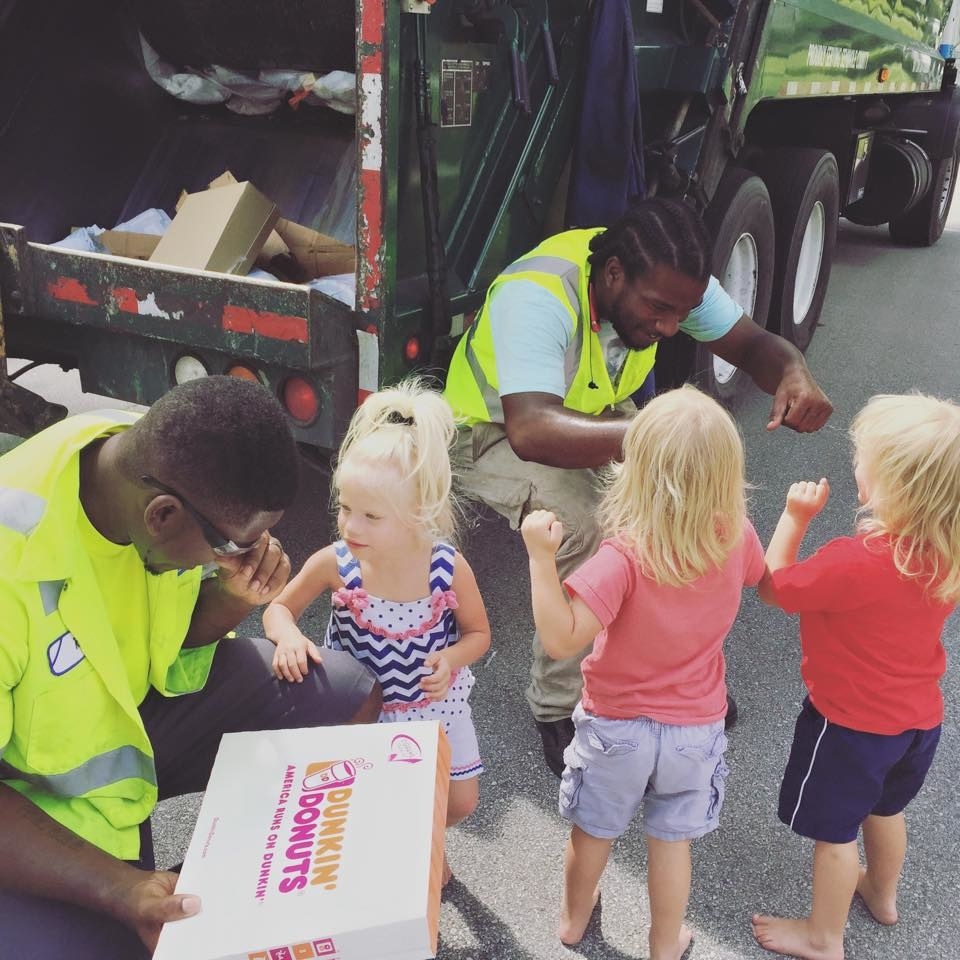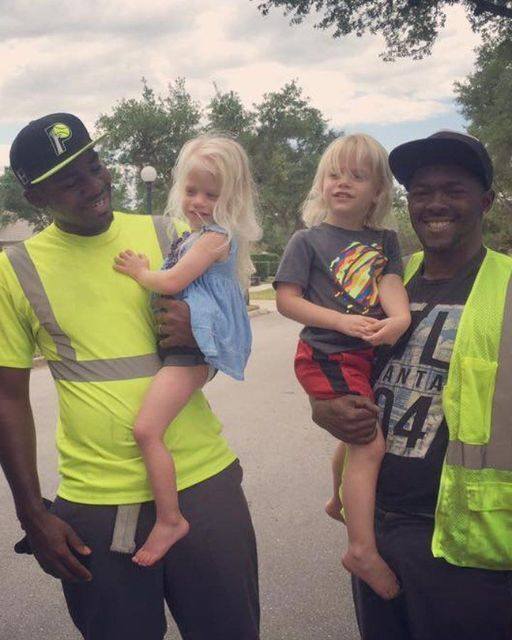From Monday Mornings to Lifesaving Moments
Every Monday, like clockwork, two little faces pressed against the living room window, eyes wide with anticipation. For most families, garbage day is background noise. But for one mother and her twins, it became a lifeline—and eventually, the beginning of an extraordinary bond that would change everything.
This is the true story of how two sanitation workers went from weekly visitors to everyday heroes, saving a life, offering comfort, and proving that sometimes, the smallest routines hide the greatest acts of humanity.
The Magical Arrival of the Men in Orange
Jesse and Lila were just two years old when they first became fascinated by the rumble of the garbage truck. It wasn’t just the sound that captivated them, but the people—two sanitation workers named Theo and Rashad. Week after week, they rolled down the street, clad in bright orange vests, honking and waving at the twins.
What started as an innocent delight turned into a powerful connection. “They became the only adults I could count on,” their mother recalled. Living through personal hardships and raising twins alone, her contact with Theo and Rashad became more than just a wave—it became emotional support.
The children would draw pictures of garbage trucks, collect toy versions, and even tape “thank you” notes to the window. Mondays became sacred. Theo was calm and kind; Rashad, always energetic. They treated the family with respect, joy, and consistency—the very things that had been missing from their lives.
A Collapse That Changed Everything

The bond deepened without words, without formal introductions—just steady, weekly presence. Then, one Monday, everything changed.
The twins’ mother had been pushing through weeks of severe fatigue and illness. Dehydrated and suffering from the flu, she collapsed in her home. Alone with two toddlers and unable to call for help, she was in a dangerous situation.
Theo and Rashad immediately sensed something was wrong when they didn’t see the usual faces at the window. They didn’t just move on—they acted.
“They were the ones who got help. They noticed something was off and made sure someone checked in on us,” she said. Those actions likely saved her life—and ensured Jesse and Lila were safe.
The Aftermath: Coffee, Muffins, and Gratitude

Once recovered, the mother found a new way to say thank you. Each Monday, she and the twins would leave out fresh coffee and muffins for Theo and Rashad. What began as a simple gesture turned into a weekly ritual of appreciation.
Over time, conversations blossomed. They shared more about their lives. Theo eventually asked the mother to share the story of what happened, hoping to shine a light on the unseen care sanitation workers often give.
The story went viral.
It spread across social media and news outlets, reminding people everywhere that essential workers don’t just pick up trash—they show up, they pay attention, and sometimes, they save lives.
A Community Comes Together

Following the viral attention, the sanitation department honored the twins as honorary garbage truck helpers. Photos circulated of Jesse and Lila beaming in child-sized safety vests, proudly sitting in the truck’s cab. The recognition was heartfelt—but for the mother, the most powerful moments were the quiet ones.
She recalled one Monday when Jesse, overwhelmed by emotion, began crying during their usual porch visit. Without hesitation, Theo picked him up, gave him a hug, and let him sit in the front seat of the truck, vest and all.
“That moment broke me—in a good way,” she said. “It reminded me that this was never about garbage trucks. It was about two men showing up every week for a family who desperately needed that kind of presence.”
Why This Story Matters More Than Ever
In a world often dominated by negativity and indifference, this story offers a powerful counter-narrative: that there are still people out there doing quiet, consistent good. That human connection still exists in the simplest of routines—like garbage pickup.
Sanitation workers rarely get credit beyond their job description, but their work and reliability can have an emotional ripple effect. This family’s story isn’t just heartwarming—it’s a call to recognize the everyday heroes around us.
Whether it’s the barista who remembers your name, the mail carrier who takes a moment to greet your child, or the sanitation worker who notices you’re missing from your usual window—these moments matter.
Mondays Are Sacred Now
Today, the family continues their porch tradition. They sit outside with coffee, waving at the truck as it approaches. Jesse and Lila still adore Theo and Rashad, but now it’s about more than excitement—it’s about trust, gratitude, and the quiet power of showing up.
“We don’t see them as sanitation workers anymore,” the mother said. “We see them as part of our story. Part of our healing.”
Final Thoughts
This isn’t a tale of grand heroism in the traditional sense—but of the quieter, more lasting kind. It’s a reminder that some of the most impactful people in our lives don’t wear capes. Sometimes, they wear orange vests and drive garbage trucks.
They wave, they honk, and sometimes—they save your life.
Sources:
